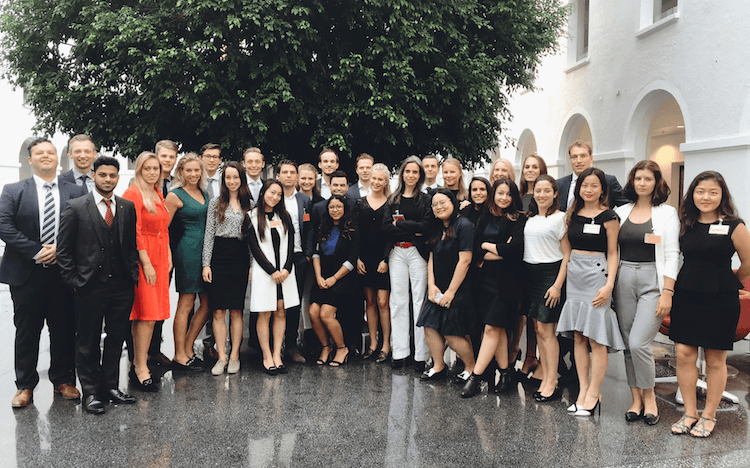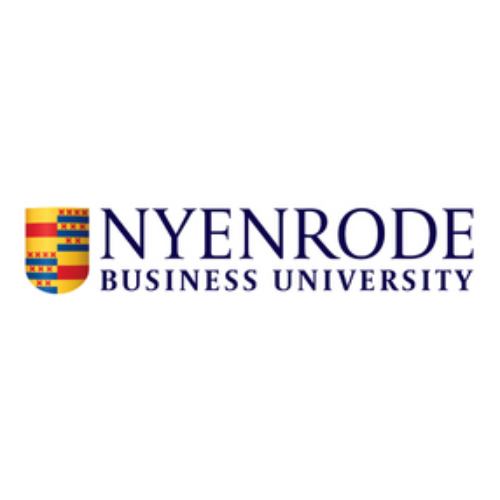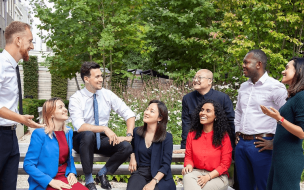Businesses often have a far greater capacity to respond to the world’s crises, moving with the freedom and agility that state governments often lack. Setting the global agenda, therefore, often falls on the shoulders of business.
This places a huge responsibility, and ethical obligation, on the leaders and future leaders of these organizations.
For students of the Master of Science (MSc) in Management at Nyenrode Business University in the Netherlands, understanding the importance of responsible management is key to any ethically focused, globally minded leader, ensuring they have the right approaches and right solutions to effectively address today’s problems.
The effects of globalization

©Laura Meulenberg
One of the greatest effects of globalization on businesses is the fact that operations and transactions take place on a world scale.
Supply chains, value chains, operations—everything functions on an international level.
Business leaders must be prepared to operate on a global scale, and Master’s programs must be able to reflect this.
Laura Meulenberg sought an understanding of global business, and how these relationships operate in the international sphere, when she was searching for business schools.
Nyenrode’s Master’s in Management had a strong emphasis on responsible management in the global arena, guiding students in how to navigate the challenges of international business with an ethical approach.
A key element of this is business diplomacy—the management of interfaces between a global company and its non-business counterparts. This takes students through every level of the global sphere, interacting with companies, NGOs, and country authorities, all while understanding the local and global agendas.
A trip to Geneva, as part of the international business and diplomacy elective, takes students to visit the World Trade Organization, the International Labour Organization, the United Nations, and the Office of the Human Rights Commissioner.
Meeting these institutions first-hand, and interacting with some senior diplomats, offered Laura a fresh perspective on the advisory role that these organizations play.
“We hardly know anything about these great institutions, even though they play such a large role in trying to navigate the global players,” she illustrates. “Contrary to my previous belief, they play much more of a guiding role than a forceful one.”
“The perception is that these organizations force countries and people to do certain things. But on the contrary they try more to advise than to produce fear. It’s about sharing and informing.”
As an aspiring diplomat, Laura understands the importance on these institutions to share best practice and responsible leadership models around the world.
Promoting sustainability at the forefront of business

With the impending threat of climate change, sustainability goes hand in hand with responsible management.
Responsible leaders must take the lead in driving environmental change inside companies, drawing upon the sustainable development goals (SDGs) as steps in the right direction.
Rahul Nair (pictured), a Nyenrode alum, saw the direct impact of climate change while working for a construction company in India. It drove him towards wanting to make an impact.
“I was working in an industry that pollutes a lot, and has a huge carbon footprint, and that inspired me to focus on sustainable development,” he remembers.
Nyenrode’s emphasis on driving environmental change through business drew him towards their Master’s program, where he could meet and interact with global leaders in sustainability.
One particular highlight was meeting the World Business Council for Sustainable Development (WBCSD), a CEO-led organization of over 200 international companies from many industries, all with the aim of auctioning the SDGs.
Rahul enthuses about a conversation he had with the president, Peter Bakker, who demonstrated the importance of working with a responsible mindset.
“We’d learnt about the SDGs in class, but I wasn’t always clear about the roles of companies in this,” he notes. “He really helped me understand that sustainability should be in your genes—that you should always carry your responsibilities with you whenever you are doing business.”
The responsibility, he emphasizes, is firmly on the leaders of these organizations to practice good diplomacy.
“These developments should always come from the top. That really inspires you as a small level employee, that sustainable theory can come from anyone across the organization,” Rahul stresses.
Student Reviews
Nyenrode Business University








